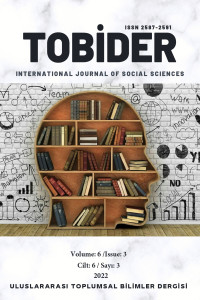Abstract
The purpose of this article is to examine the three allusions to Dante’s Inferno which
Eliot outlines in the notes on “The Waste Land.” By drawing upon minute details from “Canto
III” this work parallels the London clerks from “The Burial of the Dead” with the uncommitted in
Hell’s vestibule. This article conveys how Eliot’s vision is reminiscent to that of the pilgrim, but
also how it differs from the pilgrims account as well. This article also elucidates on Eliot’s
evocation of “Canto IV,” as well as its effect on Eliot’s vision. By drawing upon certain echoes
from Dante’s portrayal of Limbo, this article conveys how “Canto IV” reverberates in the London
clerks segment of “The Burial of the Dead,” but also how it challenges some aspects of the clerks
portrayal. With regards to Eliot’s allusion to “Canto XXXII” in “What the Thunder Said” this
article delineates upon a parallel with Cocytus, rather than with Ugolino.
References
- Dante Alighieri, The Divine Comedy, trans. Allen Mandelbaum (New York: Columbia University Libraries, 2018), https://digitaldante.columbia.edu/dante/divine-comedy/
- T. S. Eliot, “The Waste Land,” Poetry Foundation, accessed September 12, 2022. https://www.poetryfoundation.org/poems/47311/the-waste-land
- Oliver Tearle, “A Summary and Analysis of T. S. Eliot’s The Waste Land,” https://interestingliterature.com/2016/10/a-summary-and-analysis-of-t-s-eliot-the-waste-land/
- Teodolinda Barolini, “Inferno 3: Crossings and Commitments,” in Commento Baroliniano (New York: Columbia University Libraries, 2018), https://digitaldante.columbia.edu/dante/divine-comedy/inferno/inferno-3/
- F. O. Matthiessen, The Achievement of T.S. Eliot (Michigan: Boston and New York Houghton Mifflin Company, 1935), 52. https://babel.hathitrust.org/cgi/pt?id=mdp.39015003856344&view=1up&seq=7&skin=2021
- Frederick Locke, “Dante and T.S. Eliot’s Prufrock,” The John Hopkins University Press 78, no. 1 (1963): 52.
- Anthony Oldcorn, “Canto III” in Lectura Dantis: Inferno: A Canto-by-Canto Commentary (Los Angeles: University of California Press), 41.
- John Ciardi, “Canto III” in The Inferno (New York: Signet Classics), 45.
- Robert A. Day, “The ‘City Man’ in The Waste Land: The Geography of Reminiscence,” Modern Language Association 80, no. 3 (1965): 285.
- Oliver Tearle, The Great War, The Waste Land, and the Modernist Long Poem (London: Bloomsbury Academic), 60.
- Teodolinda Barolini, “Inferno 4: Non-Christians in the Christian Afterlife,” in Commento Baroliniano (New York: Columbia University Libraries, 2018), https://digitaldante.columbia.edu/dante/divine- comedy/inferno/inferno-4/
- Dante Alighieri. “Notes on Canto XIII.” In The Divine Comedy. Translated by Dorothy L. Sayers. London: Penguin Classics, 1950.
Abstract
The purpose of this article is to examine the three allusions to Dante’s Inferno which
Eliot outlines in the notes on “The Waste Land.” By drawing upon minute details from “Canto
III” this work parallels the London clerks from “The Burial of the Dead” with the uncommitted in
Hell’s vestibule. This article conveys how Eliot’s vision is reminiscent to that of the pilgrim, but
also how it differs from the pilgrims account as well. This article also elucidates on Eliot’s
evocation of “Canto IV,” as well as its effect on Eliot’s vision. By drawing upon certain echoes
from Dante’s portrayal of Limbo, this article conveys how “Canto IV” reverberates in the London
clerks segment of “The Burial of the Dead,” but also how it challenges some aspects of the clerks
portrayal. With regards to Eliot’s allusion to “Canto XXXII” in “What the Thunder Said” this
article delineates upon a parallel with Cocytus, rather than with Ugolino.
References
- Dante Alighieri, The Divine Comedy, trans. Allen Mandelbaum (New York: Columbia University Libraries, 2018), https://digitaldante.columbia.edu/dante/divine-comedy/
- T. S. Eliot, “The Waste Land,” Poetry Foundation, accessed September 12, 2022. https://www.poetryfoundation.org/poems/47311/the-waste-land
- Oliver Tearle, “A Summary and Analysis of T. S. Eliot’s The Waste Land,” https://interestingliterature.com/2016/10/a-summary-and-analysis-of-t-s-eliot-the-waste-land/
- Teodolinda Barolini, “Inferno 3: Crossings and Commitments,” in Commento Baroliniano (New York: Columbia University Libraries, 2018), https://digitaldante.columbia.edu/dante/divine-comedy/inferno/inferno-3/
- F. O. Matthiessen, The Achievement of T.S. Eliot (Michigan: Boston and New York Houghton Mifflin Company, 1935), 52. https://babel.hathitrust.org/cgi/pt?id=mdp.39015003856344&view=1up&seq=7&skin=2021
- Frederick Locke, “Dante and T.S. Eliot’s Prufrock,” The John Hopkins University Press 78, no. 1 (1963): 52.
- Anthony Oldcorn, “Canto III” in Lectura Dantis: Inferno: A Canto-by-Canto Commentary (Los Angeles: University of California Press), 41.
- John Ciardi, “Canto III” in The Inferno (New York: Signet Classics), 45.
- Robert A. Day, “The ‘City Man’ in The Waste Land: The Geography of Reminiscence,” Modern Language Association 80, no. 3 (1965): 285.
- Oliver Tearle, The Great War, The Waste Land, and the Modernist Long Poem (London: Bloomsbury Academic), 60.
- Teodolinda Barolini, “Inferno 4: Non-Christians in the Christian Afterlife,” in Commento Baroliniano (New York: Columbia University Libraries, 2018), https://digitaldante.columbia.edu/dante/divine- comedy/inferno/inferno-4/
- Dante Alighieri. “Notes on Canto XIII.” In The Divine Comedy. Translated by Dorothy L. Sayers. London: Penguin Classics, 1950.
Details
| Primary Language | English |
|---|---|
| Subjects | Linguistics |
| Journal Section | Uluslararası Toplumsal Bilimler Dergisi Cilt 6 Sayı 3 |
| Authors | |
| Early Pub Date | December 30, 2022 |
| Publication Date | December 31, 2022 |
| Published in Issue | Year 2022 Volume: 6 Issue: 3 |


